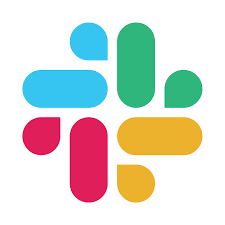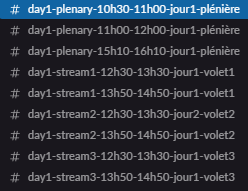Difference between revisions of "GC Data Conference 2023/networking"
Samuel.burke (talk | contribs) |
Samuel.burke (talk | contribs) |
||
| Line 125: | Line 125: | ||
<!-- #2 --> | <!-- #2 --> | ||
| − | <li style="width:350px;"><strong>[https://csps-efpc.webex.com/csps-efpc/j.php?MTID=me99b58407a0fd7f907490760e2abd6d1 People & Culture]</strong></li> | + | <li style="width:350px;"><strong>[https://csps-efpc.webex.com/csps-efpc/j.php?MTID=me99b58407a0fd7f907490760e2abd6d1 People & Culture Working Group]</strong></li> |
<div class="mw-collapsible-content">People and Culture Working Group (PCWG) is a community forum for learning, knowledge sharing, and collaboration. We connect on common priorities and challenges to share best practices and lived experiences on all things data. Inclusivity is at our bedrock where we invite data practitioners and stakeholders of all classifications and levels with diverse educational and professional backgrounds to participate. | <div class="mw-collapsible-content">People and Culture Working Group (PCWG) is a community forum for learning, knowledge sharing, and collaboration. We connect on common priorities and challenges to share best practices and lived experiences on all things data. Inclusivity is at our bedrock where we invite data practitioners and stakeholders of all classifications and levels with diverse educational and professional backgrounds to participate. | ||
<p>Our mandate is to transmit the knowledge and value of data to transform the people and culture around data and data literacy. Critical inquiry and reflection on issues and challenges faced by the community provide opportunity for collective intelligence building and collaborative approaches to problem-solving, which can create new ways of thinking and doing. In turn, members can bring back knowledge and ideas to their networks and advance discussions further.</p> | <p>Our mandate is to transmit the knowledge and value of data to transform the people and culture around data and data literacy. Critical inquiry and reflection on issues and challenges faced by the community provide opportunity for collective intelligence building and collaborative approaches to problem-solving, which can create new ways of thinking and doing. In turn, members can bring back knowledge and ideas to their networks and advance discussions further.</p> | ||
| Line 188: | Line 188: | ||
</ul> | </ul> | ||
</div> | </div> | ||
| − | |||
<br> | <br> | ||
</div> | </div> | ||
<div style="clear:both;"></div> | <div style="clear:both;"></div> | ||
<div class="mw-collapsible mw-collapsed" style="width:auto; max-width:800px; float:left;"> | <div class="mw-collapsible mw-collapsed" style="width:auto; max-width:800px; float:left;"> | ||
| + | <div class="button" role="button" style="color:DarkBlue; max-width:190px; background-color:#E0F6F6; margin-top:10px;">[https://csps-efpc.webex.com/csps-efpc/j.php?MTID=m0dbf963e0121789a4478b7d2feacf21d Join this session!]</div> | ||
</ul> | </ul> | ||
Revision as of 17:41, 20 February 2023
vExpo | Agenda | Speakers | Discover more about data |
 WebEx
WebEx
- People & Culture Working Group
- Data Science Network
- The future of natural language processing and machine learning: Speculate about the potential impact of NLP and machine learning on the government, as well as on industries such as healthcare, finance, and education. Discuss the challenges that must be overcome to realize this potential.
- The impact of data science on society: Explore the ways in which data science is shaping the world around us, from personalized advertising to predictive policing. Discuss the ethical considerations that arise when using data science and machine learning, such as privacy, bias, and fairness.
- The future of data science education: Discuss the skills that will be necessary for future data scientists, and explore different strategies for educating and training the next generation of data scientists.
- Data and Information Management Leaders
- Public Sector Experimentation
- demonstration projects (learning by doing);
- community building (learning events and information sharing); and
- research (exploring new and enabling methodologies).
- Digital Community
- the traditional domain of Information Technology, the people responsible for enabling technical transformation
- information and data management
- data analytics
- data science
Our mandate is to transmit the knowledge and value of data to transform the people and culture around data and data literacy. Critical inquiry and reflection on issues and challenges faced by the community provide opportunity for collective intelligence building and collaborative approaches to problem-solving, which can create new ways of thinking and doing. In turn, members can bring back knowledge and ideas to their networks and advance discussions further.
Discussion questions
Their efforts are supported by a three-point framework:
Our community includes:
 Slack
Slack
→ Click here to join the GC Data Conference 2023 Slack workspace. Enter your email address and follow the instructions to create an account or log in.
Once you're logged in, you'll find a list of channels on the left organized by topic or event session.
You can start by introducing yourself in the #welcome-bienvenue channel, and then chatting in the channel(s) of the session you're attending.
Each channel corresponds to a session at the GC Data Conference. For example, in the below image, the first channel highlighted in blue is for Day 1 (February 22, 2023) plenary session from 10:30 - 11:00 am. Once you've selected that channel, you can begin typing to share your thoughts on the Conference opening with other participants.

If you're experiencing technical difficulties, or would like to learn more about using Slack, please visit the Slack Help Centre.
GC Data Community | Contact us | Subscribe | Join us on GCcollab | GC Data Community Partners

